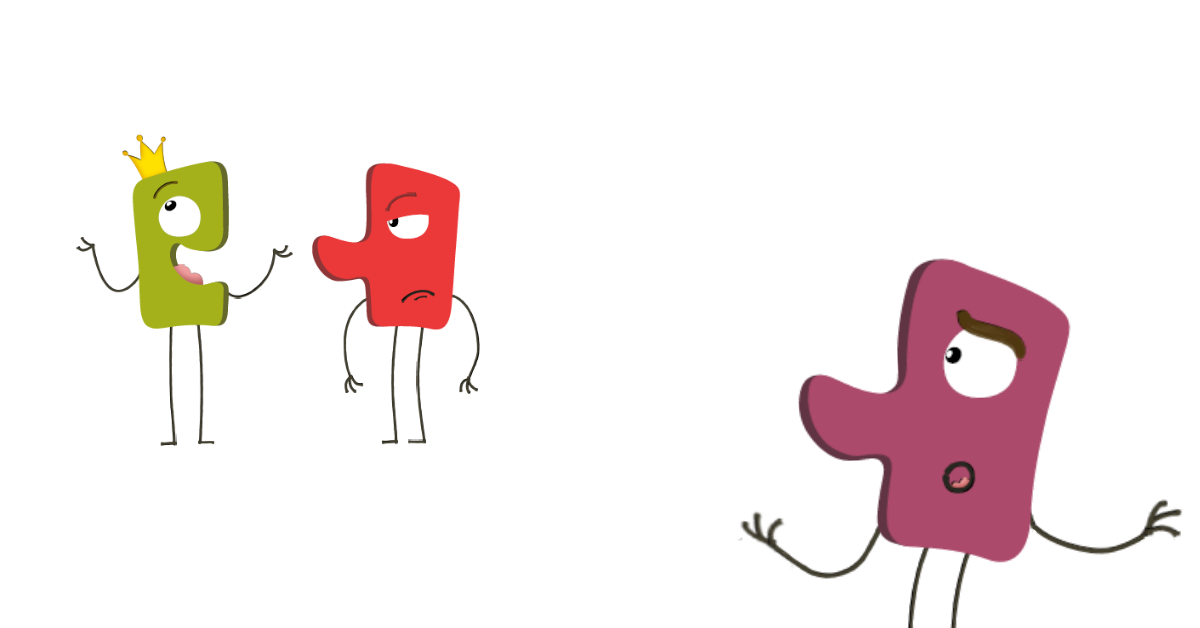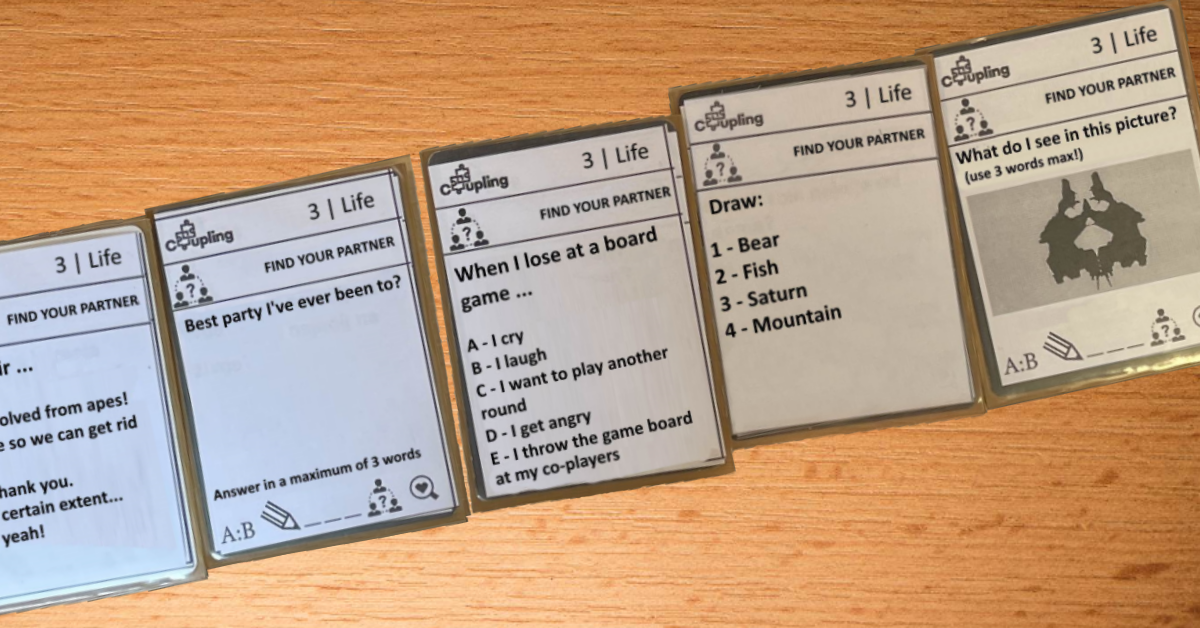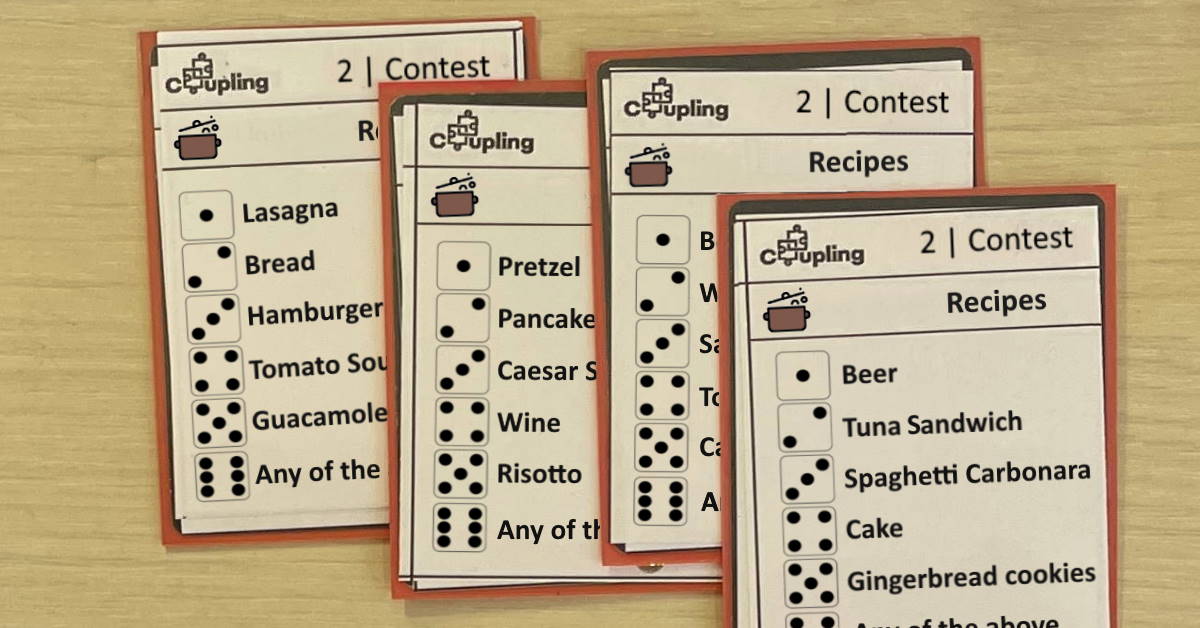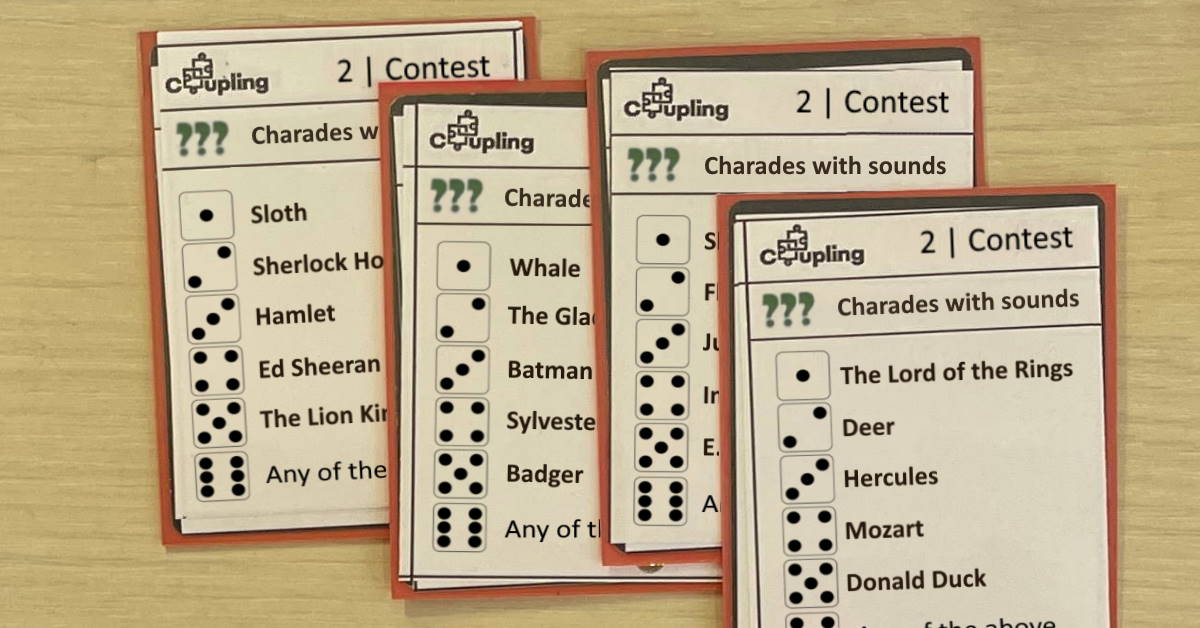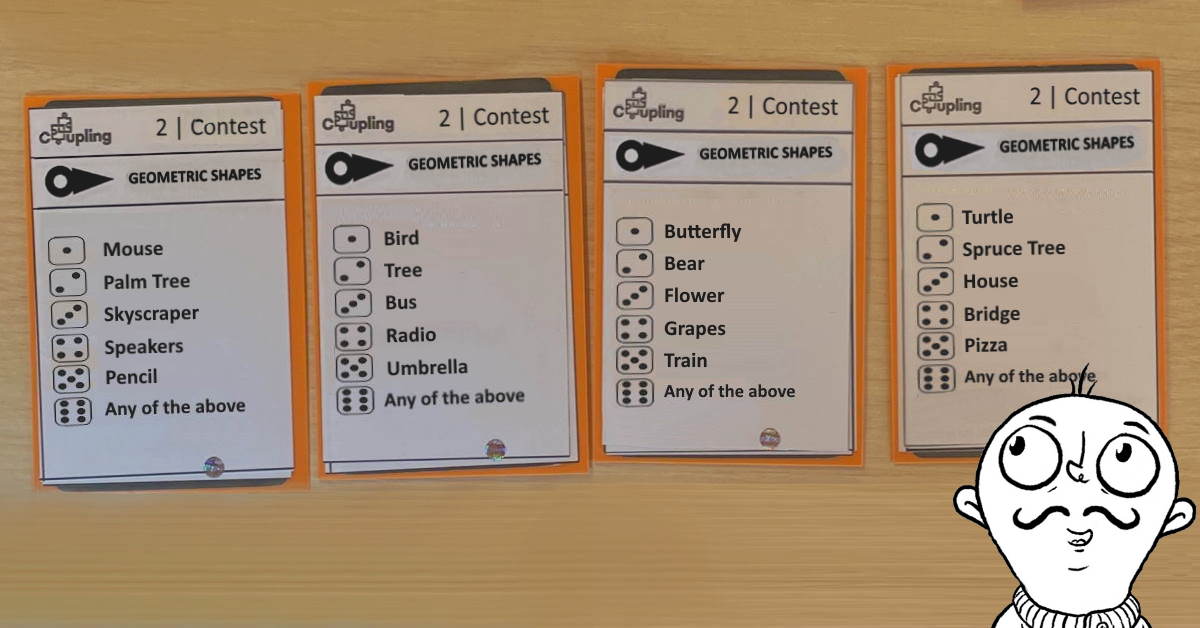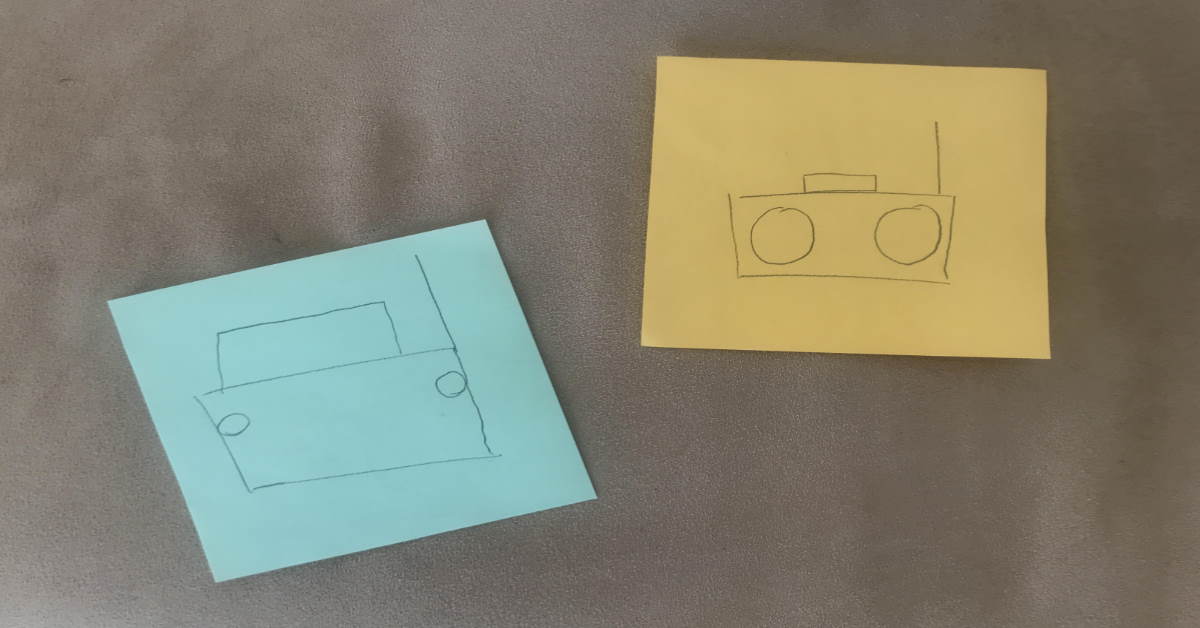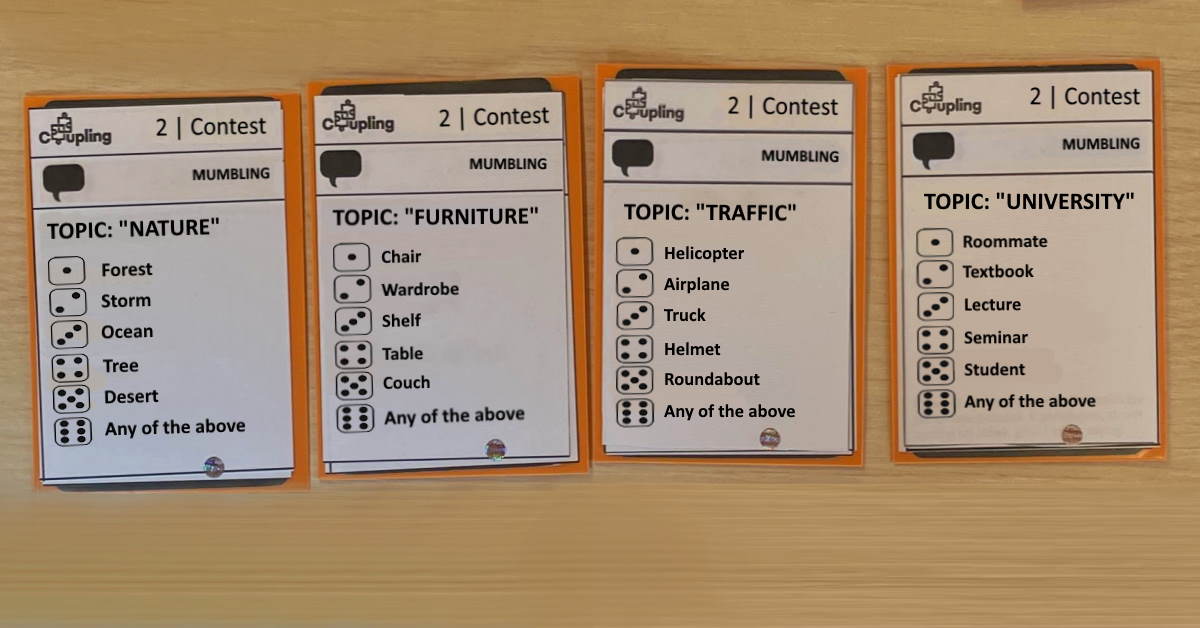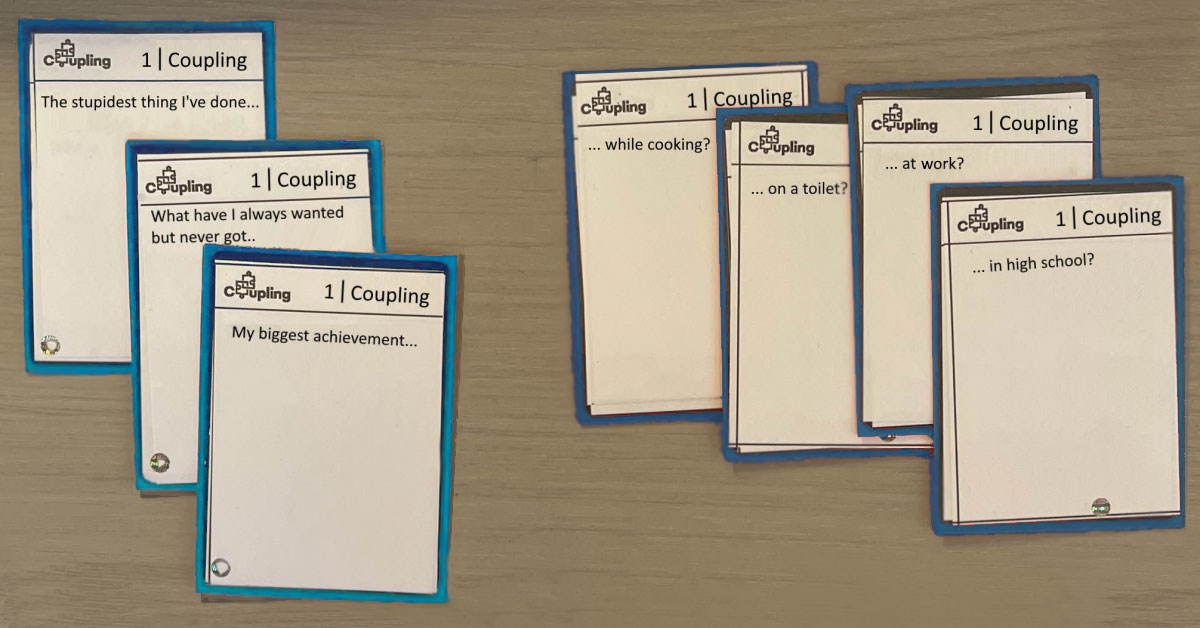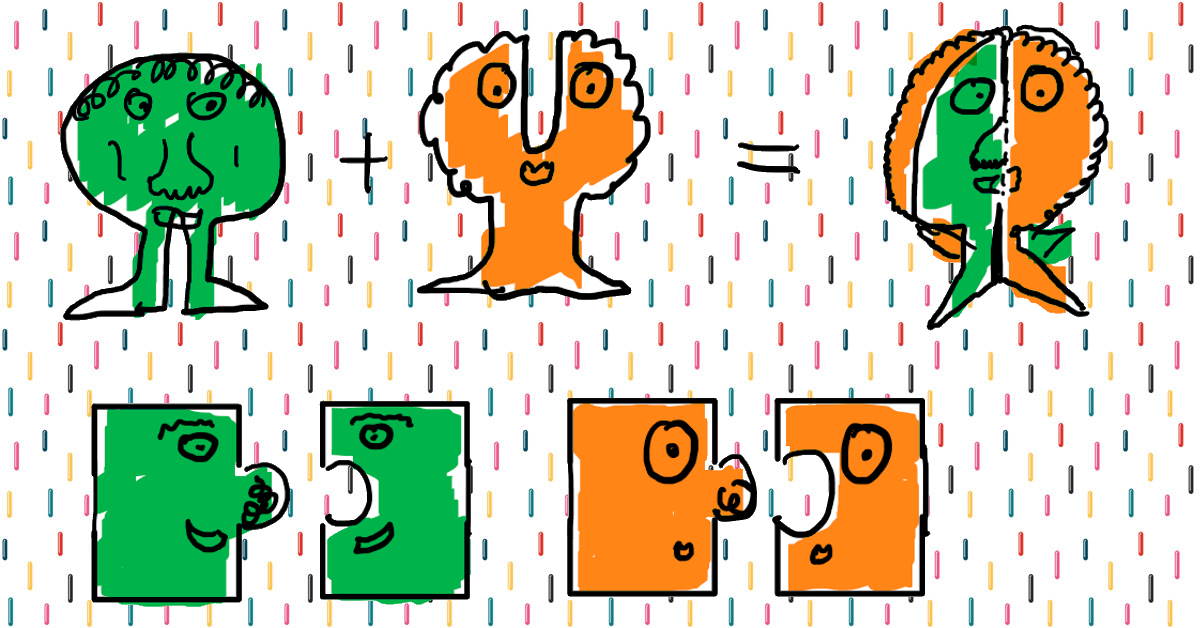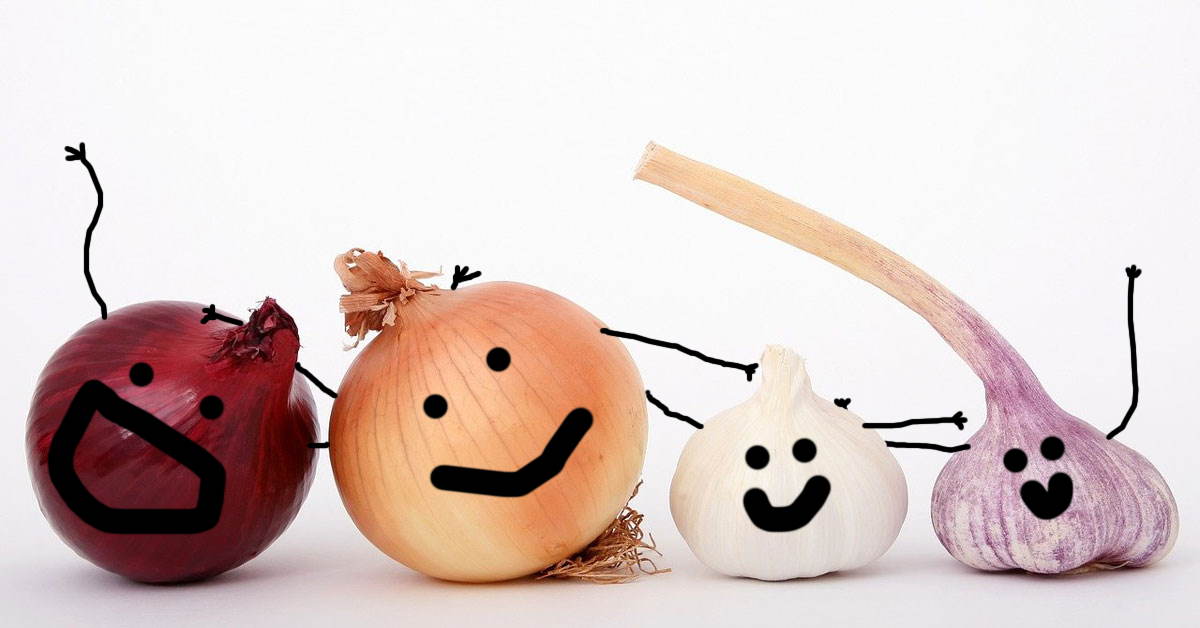Singles: When You Don’t Have A Partner
Chances are that when you’re playing board games, you don’t always have an even number of players. That might be a problem with games that need to be played in teams – The singles are bound to feel left out. With coupling, that’s not a problem at all! Rather, it makes the game even more exciting!
At first, everything works normally…
For the first and second stage, there’s no difference in gameplay, whether you’re playing with an odd or an even number of players. In the third stage, though, Singles come into play. One of the players – the one that didn’t manage to get to the third stage with any of their stage two partners – will play by themselves.
Different rules
Playing by themselves gives the Singles certain advantages and also gives them different rules to play by. Firstly, in the third stage, other players try to find their partners out of all the answers. They move ahead when they find them. Singles, on the other hand, must write an answer that will make other players choose their answer instead of their partner’s. How they achieve that is up to them, of course.
Break up a Couple!
If a Single player makes it to the finish line, they do the same as other players. They take two Stage One cards and read the question out loud. Others must all write an answer. The Single then chooses one of the answers, and the player who wrote that answer becomes their partner – The Single goes to where their new partner is and breaks up their old couple to join them. The player that was now left out of that couple, becomes the new Single!

